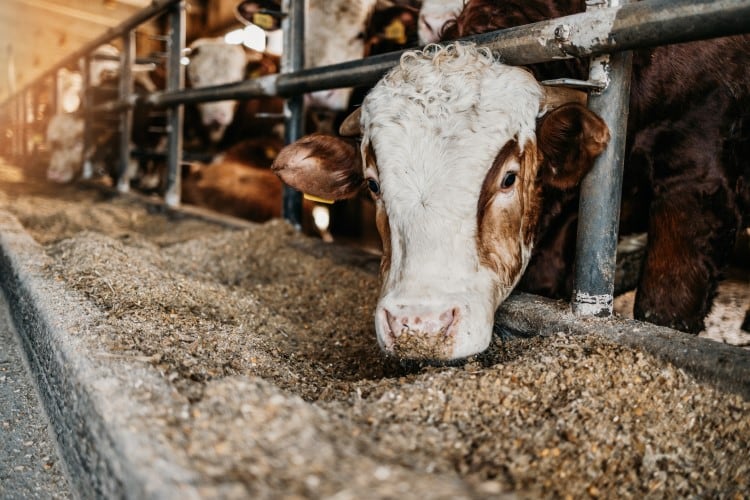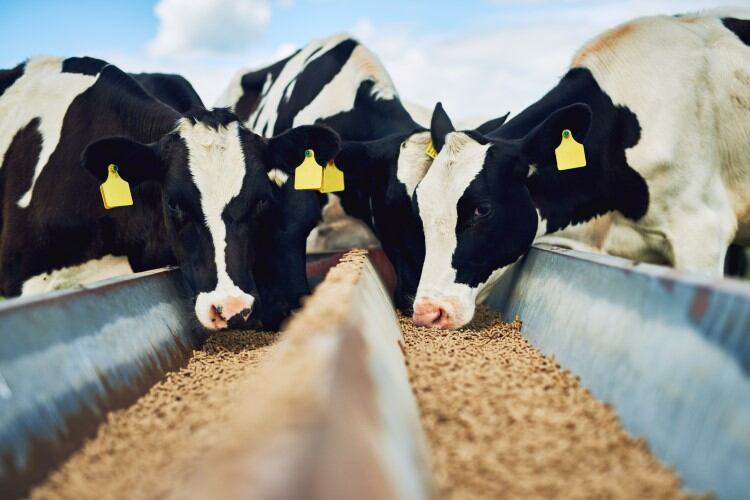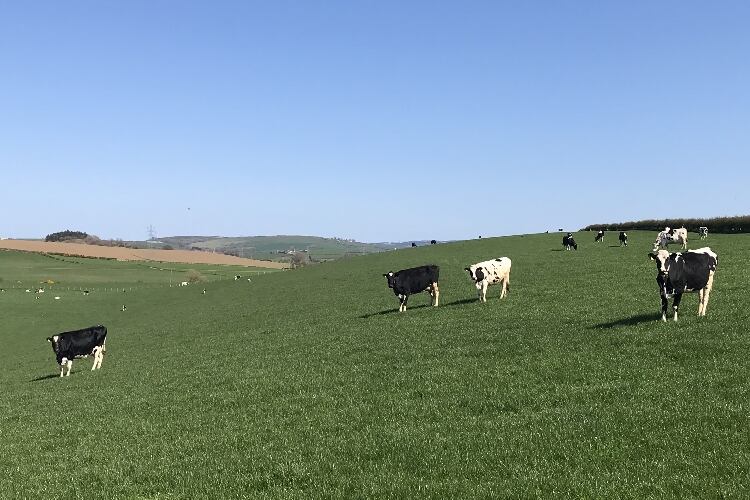The project, which started in 2022, involved 200,000 cows at 158 farms and was a collaboration by Dutch dairy co-op FrieslandCampina, feed supplier Agrifirm, and Bovaer maker, DSM.
During the period, a decrease of 10,000 tons of carbon dioxide equivalent in methane emissions was recorded – an average of 28 – without affecting cattle health, milk volumes and milk composition.
DSM believes the experiment would pave the way for its feed additive to be rolled out to the entire dairy herd. In 2022, regulators approved Bovaer for use withing the EU.
The news comes at a time when Dutch dairies are facing increasing pressures to adapt to more climate-friendly farming practices or face wide-scale shut-downs. The government is pushing to halve the country’s nitrogen emissions by 2030 to meet EU targets, and farmers are expected to reduce emissions by 40%.
Enteric methane from dairy cows is thought to contribute up to 60% of the global GHG emissions from milk production. FrieslandCampina, one of the largest co-operatives in Europe with more than 15,000 member farmers, is aiming to bring down emissions by 33% by 2030 and reach carbon neutrality by 2050.
No effect on milk production, cow health
According to farmers who participated in the trial, adding Bovaer to the ration did not result in changes to animal health or milk production and composition. Jelle Heida, who runs a 400-head dairy farm in Hoornsterzwaag, said: “I participated in the Bovaer pilot because I was curious whether the feed additive would affect the fermentation process. I did not notice any effect as we added Bovaer to the ration.
“We also did not observe any changes in the health of our cows or in their milk production and composition.”
Lars van den Nieuwenhof, who owns a farm with 125 dairy cows in Someren, added: “As an industry, we are at a tipping point. We have to move along and try to reduce methane emissions.
“We were therefore eager to participate in this pilot. Moreover, participation is low-threshold and it requires little effort.
“The Bovaer is mixed into the minerals we feed to the cows. Every day, we mix the minimum dose of 150g of those minerals through the ration.
“I am definitely satisfied with the results. The cows are producing well, are healthy, vital and fertile. We will continue to use the feed additive. I am happy that we can make an additional contribution to reducing our impact on the climate.”
Mark van Nieuwland, VP Bovaer at DSM, said: “We are delighted with the positive feedback from the dairy farmers involved in this large-scale pilot project in the Netherlands, which has confirmed the potential of our innovative Bovaer feed additive. We look forward to continuing our partnership with FrieslandCampina and Agrifirm to ensure Bovaer reaches more cows and makes an even greater contribution to tackling agricultural methane emissions.
“With these developments we also play a key role in supporting the near-term climate goals of the Global Methane Pledge, signed by more than 150 countries including the Netherlands.”



